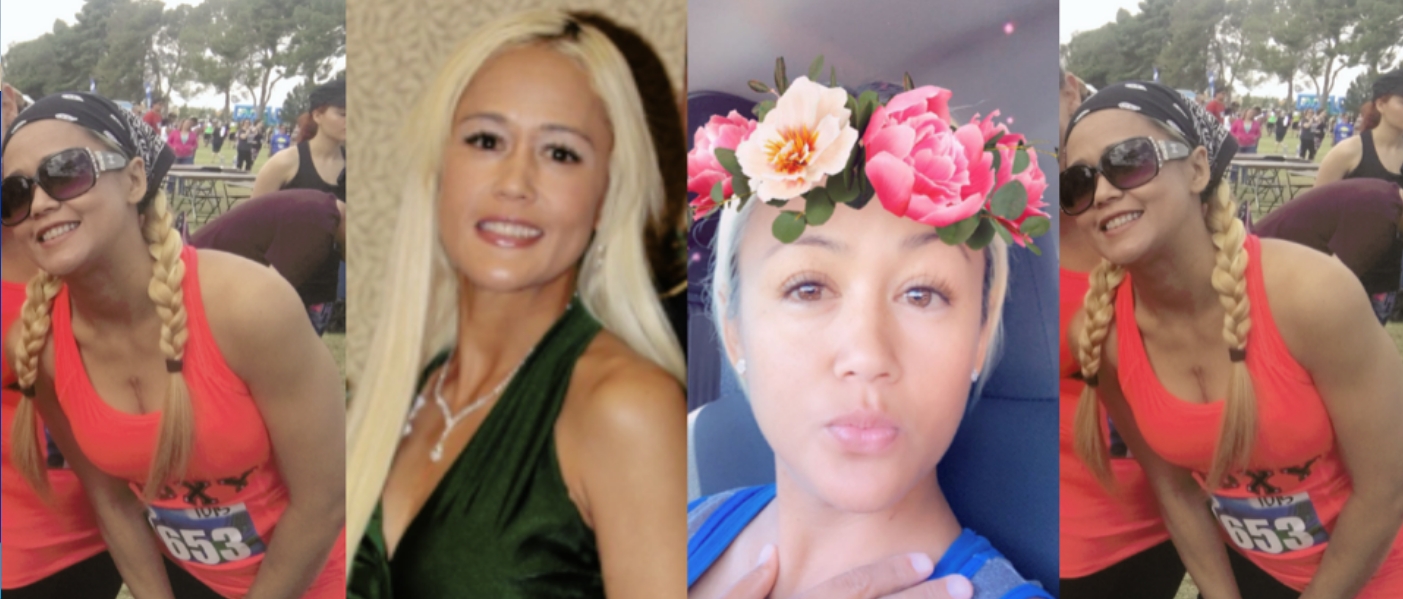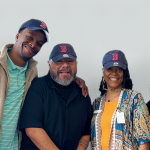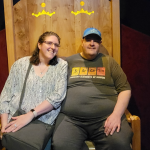Everything in Her Power
Roxy’s Mission for Improved Health and a Better Future
Like most high school kids, the last thing Roxy wanted was to feel left out. She liked doing the things her friends did, going where they went, and enjoying what they enjoyed – together. So, when a Type-1 diabetes diagnosis entered the picture at age 15, she wasn’t ready or willing to make meaningful changes to her lifestyle.
If she could, Roxy would turn back the clock and educate her younger self. Instead, she’s focusing on her future. She’s taken control of her health, found the best therapy options for herself and her family, gotten her life back, and received a kidney transplant in 2021. She also works as a NxStage Patient Advocate, informing patients and others about possible dialysis options, and helping people understand kidney disease better.
“Being a teen, I was such a rebel,” recalls Roxy, who is now 37 and a mother of two. “I just wanted to live my life like everyone else and eat and drink the things I wanted. I wasn’t taking my medications and my blood sugar was out of control. I didn’t know the damage I was causing internally.”
With very little awareness of her disease and its dangers, Roxy carried her habits into adulthood. It was only after her son was born that she began to eat better and pay more attention to her diabetes treatments. Unfortunately, irreversible damage had already been done. Soon after the birth of her daughter, Roxy began having vision problems, which worsened with time. A visit to her eye doctor brought terrible news. She had diabetic retinopathy, a complication that can occur in diabetics after blood vessels in the eye are damaged. Roxy had several surgeries to correct the condition, but eventually lost sight in her right eye.
Over the next couple of years, Roxy’s overall health declined. She was swollen, had trouble breathing, and just wasn’t feeling herself. She went to the ER and found out her kidney function was down to 8 percent. She would need dialysis.
“I had no idea what dialysis was,” Roxy remembers. “I didn’t even feel the emotions until I walked into clinic for the first time – seeing all these people with tubes coming off them and blood going in and out. It was all so overwhelming for me. I thought, ‘Is this going to be me for the rest of my life?’”
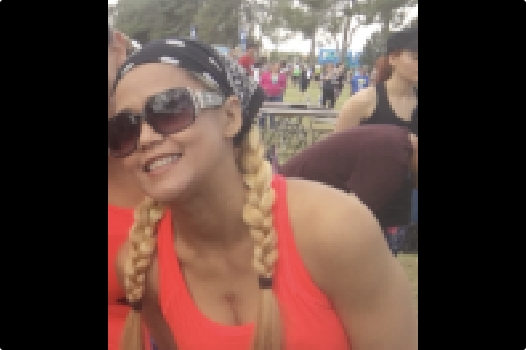
Although fully supported by her care team, in-center hemodialysis (ICHD) never felt like the right place for Roxy. She had restless leg syndrome, felt depressed and tired, and would often sleep much of her day away after a treatment. Even playing with her children was difficult, and she says she wasn’t the wife and mom that she wanted to be.
“Three days a week I spent 4 hours getting dialysis, and then I’d have to take a long nap just to feel well enough to make a meal,” she explains.
Six months after starting ICHD, a nurse at her center approached Roxy about trying a form of home dialysis. Roxy had never heard of peritoneal dialysis (PD), but after learning about it she began training to do treatments at home. After just five days on PD, Roxy says she felt much better and she was able to get back to the things she enjoyed – cooking, working out, spending time with family, and even traveling. After three years, an infection in her peritoneum made it impossible to continue PD, and Roxy was back in-center. But not for long.
“That was very tough,” Roxy recalls. “After feeling amazing for three years, suddenly all those feelings (related to ICHD) came rushing back to me. I knew that wasn’t the place for me. The nurses and staff are amazing, but I knew what it felt like to be home, and I wanted to go back.”
“Going back” meant training for a new type of therapy – home hemodialysis (HHD). At first, Roxy pictured having a full-sized ICHD machine in her house, but then the home therapies team showed her the NxStage® System One™. “I was like, oh my God it’s so cute!” says Roxy with a laugh. “They showed me the functionality, and I said, ‘I can do that.’”
Roxy became the first person in her home city of Las Vegas to do more frequent HHD and says training was “very cool”. Early in her training, she noticed a difference in her energy level. “I felt amazing!” Roxy says. “I’d get off the machine and say, ‘Let’s go get lunch!’”
Newly inspired by her progress on HHD, Roxy started considering a transplant. She did everything she could to prepare – got on two transplant lists, consulted with doctors and transplant teams, even had her wisdom teeth extracted to lower her infection risk.
Waiting for a new kidney was an emotional rollercoaster ride. Over the next several years, she received five calls from the transplant centers. Each time, something prevented her from getting a kidney. It was hard to get her hopes up only to have them come crashing down each time, says Roxy. But that all changed May 30, 2021, at 4 a.m. A kidney had come in, and Roxy was first in line for it. Her bags were packed but she had a question for her nurse … could she do one last HHD treatment before leaving for the hospital? She got the OK.
“I wanted to make sure I was taking care of everything in my power,” explains Roxy. “I wanted to know that if I didn’t get the kidney, it wasn’t because of something I did or didn’t do.”
Before the day was over, Roxy had a new kidney and new reasons to celebrate. She no longer needs a machine to clean her blood. She doesn’t have to schedule events around treatments. And she can travel anywhere she likes, without the need for supplies or a cycler. Soon there were trips to Dallas, San Diego, and Hawaii (Roxy’s homeland), and plans for a Caribbean cruise are in progress. Roxy has also ramped up her workouts and competes in hula dancing contests with her halau (hula school).
Roxy believes more frequent HHD helped prepare her for a transplant, and loves to share her story with others.
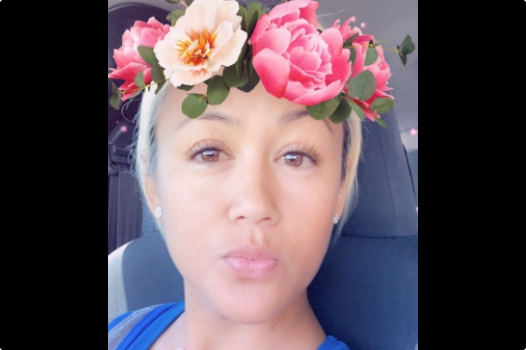
“In my opinion, patients doing HHD are taking control of their life and health and showing they can succeed,” she says. “When you get that call, you’re ready.”
For patients who are nervous to change therapies or start the transplant process, Roxy shares her approach and encourages them to learn about – or even try – different options. She also recommends they talk to others about their experiences and dialysis journeys.
“I answer questions patients may be nervous asking someone who hasn’t been there,” says Roxy. “I can speak to my real experience, the emotions, fears, and frustrations. Talking to a Patient Advocate can help opens peoples’ eyes to the fact that they aren’t the only ones going through this. That’s the reason I do what I do. This mentorship wasn’t available to me, and I wish it had been.”
Roxy is a NxStage Patient Advocate
Home hemodialysis with NxStage systems involves risks, and you may not experience the potential benefits of such therapy. NxStage systems require a prescription for use. If your doctor prescribes more frequent therapy, your vascular access is exposed to more frequent use which may lead to access related complications, including infection of the site.


